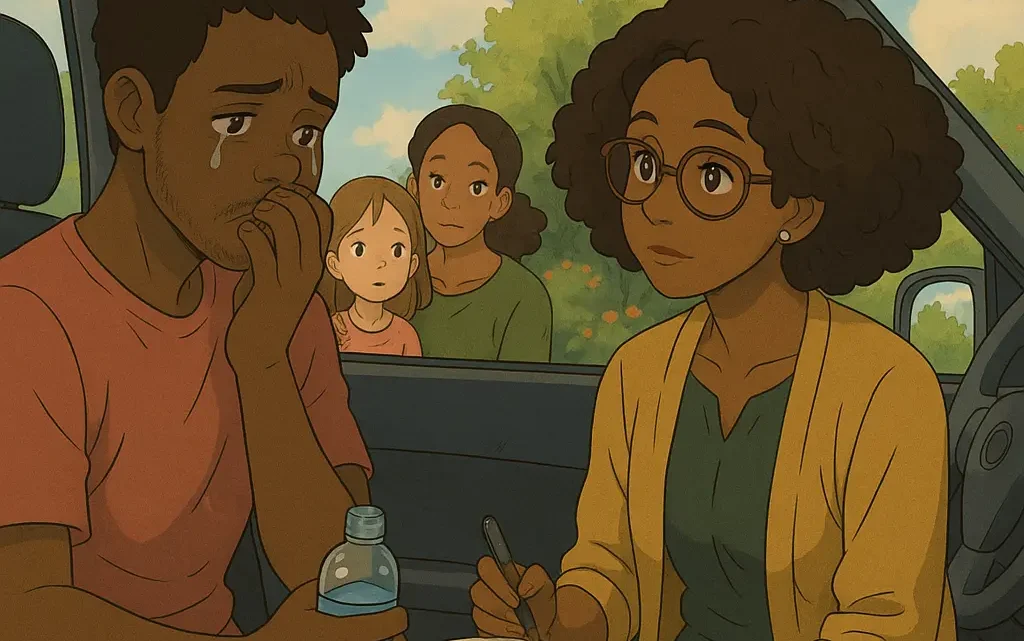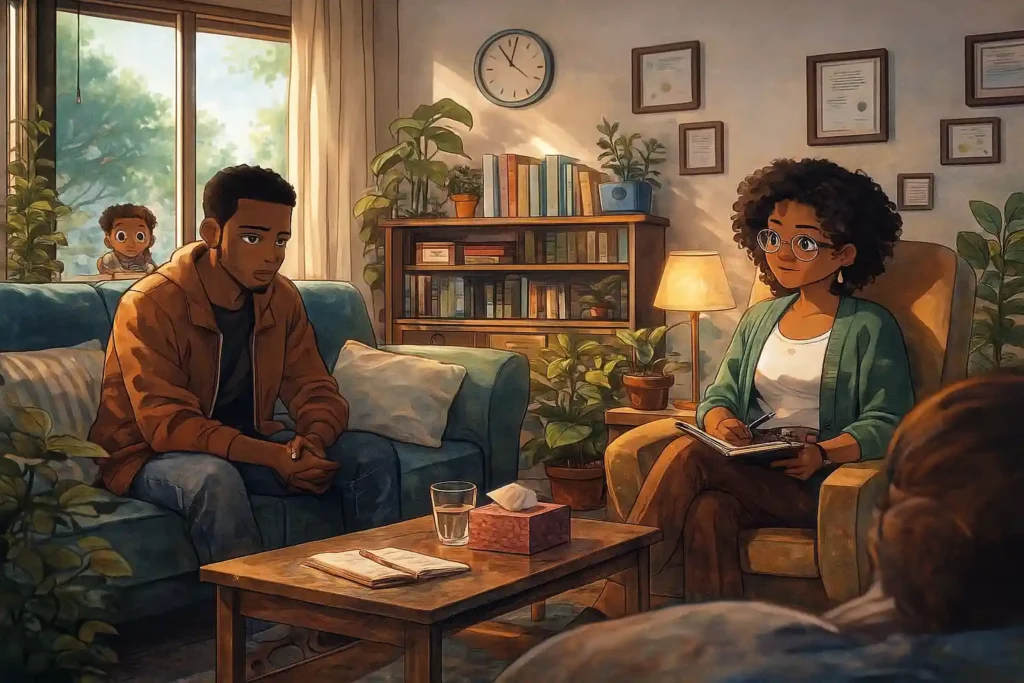
Healing Isn’t Becoming Someone New — It’s Coming Home to Yourself
The first time I realized my mind was glitching like a bad Wi-Fi connection, I was sitting in my room, staring at the ceiling fan like it owed me money.
For weeks, I’d been feeling this heavy mental exhaustion, the kind that sits on your chest like an elephant and whispers, “Stand up if you dare.”
Trending Now!!:
My anxiety had turned into a roommate—one that didn’t pay rent but always wanted attention. I knew about mental health awareness, I knew therapy wasn’t shameful, but somehow… me? Talking to a therapist? Ehn.
Still, I downloaded one mental health app like that. You know those ones that pop up on Instagram after you like one motivational quote.
Just as I signed up, a message popped up:
“Hi, I’m Dr. Maya, your assigned therapist.”
Her profile picture was giving Afro-Ghibli vibes—big glasses, big hair, warm smile. Something about her felt safe.

But I still didn’t reply.
Instead, I closed the app and went to scroll TikTok. Classic avoidance coping mechanism—yes, I know the term now.
Two days later, I found myself sitting in my car outside a supermarket in Yaba, hands trembling like my body was buffering.
I whispered to myself, “Bro, are we seriously having a panic attack in front of Chicken Republic?”
My chest tightened. My vision blurred. I felt like the world was shrinking into a Snapchat filter I didn’t sign up for.
And then I heard someone knock on my window.
A small girl—maybe eight years old—looked at me with big worried eyes.
“Uncle, are you okay?”
Her mum rushed over, apologizing, but I shook my head.
“No… I’m not.”
That admission felt like swallowing rocks.
Her mum said softly, “You look like you’re having a panic attack. Do you want water?”
I took it with shaking hands.
“You should talk to someone,” she added gently. “A therapist maybe.”
Something in that moment clicked.
I opened the app again right there and finally replied:
Me: “Hi. Sorry. I think I need help.”
Dr. Maya: “Hi. I’m here. Take a deep breath. What’s going on?”
I told her everything—how my mind felt like a crowded Lagos bus, how I’d been masking my burnout with jokes, how I hadn’t slept properly in weeks.
She didn’t interrupt. She didn’t rush. She didn’t judge.
She just listened.
Then she said something that hit deeper than any motivational quote:
“You’re not broken. You’re overwhelmed. And overwhelmed people need support, not shame.”
The way I exhaled ehn—Netflix should have added emotional soundtrack.
After weeks of sessions that felt like emotional deep-cleaning, Dr. Maya said:
“I think you’re finally ready to face what triggered everything.”
I didn’t understand. I thought I already had.
Then she did something I didn’t expect.
She pulled out a notebook and said:
“Everything you told me points to unresolved grief.
We need to talk about your dad.”
My heart froze.
“My dad? But he’s…”
“Yes. He’s alive. But emotionally? He’s absent. And emotional abandonment is still trauma.”
That statement cracked something open inside me.
The real twist?
I wasn’t depressed because life was hard.
I was depressed because I spent years pretending I wasn’t hurt by someone who was supposed to love me loudly.
That was the day therapy got real.
Therapy didn’t magically make life perfect, abeg. I still have bad days. I still cry sometimes. I still ghost my friends occasionally (self-care or self-sabotage? The line is thin).
But now?
I know how to breathe through panic.
I know how to name my emotions.
I know how to set boundaries like a bouncer at Quilox.
I know how to rest without apologizing.
And most importantly—
I’m no longer afraid to ask for help.
Last week, after a breakthrough session, I told Dr. Maya:
“You know what? I’m proud of me.”
She smiled and replied:
“Good. Healing isn’t becoming someone new.
It’s coming home to yourself.”
And honestly?
That’s the plot twist I never saw coming.


